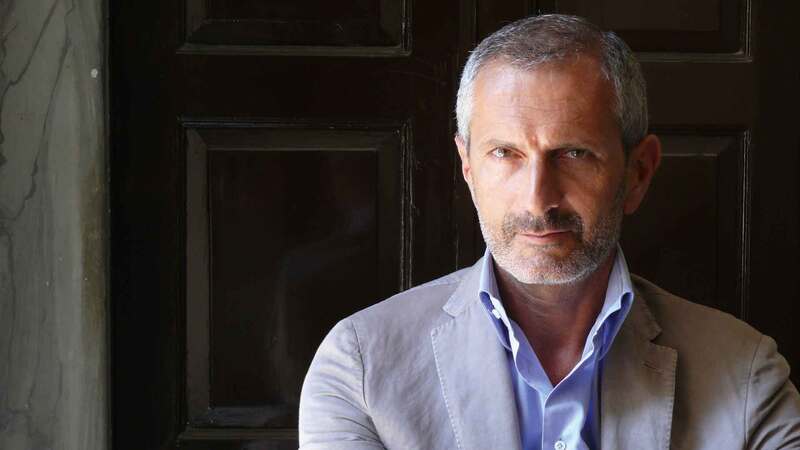Biswas outlines vision to take Footnote Press from the margins to the mainstream
Former Zed Books and New Statesman staffer Vidisha Biswas’ start-up Footnote Press has found backing in a partnership with Bonnier Books UK—and has plans to challenge the status quo.
“What else does one do when you have just sold your previous company, there’s a pandemic and you’re stuck at home? You think of starting a publishing house and using the digital opportunities that are there!” jokes Vidisha Biswas, m.d. of new publishing start-up Footnote Press, which she founded with her childhood friend Sujoy Roy.
Biswas was co-owner and business development director at publishing collective Zed Books, where she managed the company’s digital transformation strategy before it was acquired by Bloomsbury in 2020. She has also worked at the Morning Star, New Statesman and Verso Books, and says her publishing has consistently been underpinned by a “socially progressive, politically conscious” leaning. Footnote was “very much conceived of in that same radical, critical spirit, with the intention of interrogating dominant narratives and disrupting multiple status quos”.
While Biswas brings her publishing experience to the venture, marketing director Roy—who has a background in the video game and e-sports industries—brings “really cutting-edge digital marketing expertise”, another key focus of the press. Their aim is to bring the community building, optimisation, analytics and data-driven decision-making that are so prevalent in the gaming industry into traditional publishing. “We really feel like some of our strategic advantage will stem from being a digitally native, agile publisher that can react and scale at speed and shift in response to shifts in consumer behaviour,” Biswas tells me.
The duo conceived the idea for the press in autumn 2020 and started pulling a business plan together. Almost exactly a year ago, they met Bonnier Books UK c.e.o. Perminder Mann after Biswas cold-called her. By October, the companies had struck a partnership that sees Footnote operate as a separate, editorially independent company, with Bonnier looking after sales, distribution and back-office services, including printing and royalties. Biswas, who reports to Mann, says of the arrangement: “We met with Perminder and the rest of the leadership team and it was just very simpatico in the vision for the future of publishing. I think Bonnier was on its own digital transformation journey… it just felt like a really good match.” She adds: “We are very lucky because we do combine the best of both worlds—we have the spirit and the agility of an independent, but at the same time, the sales and distribution muscle of a publishing heavyweight like Bonnier. We occupy that really incredible space between being an imprint and being completely independent.”
Footnote Press will initially publish 10 to 15 books a year across literary fiction and narrative non-fiction. All of its titles will centre around themes of migration, identity and marginalised knowledge and experience. Biswas describes the focus as “an expansive and eclectic one”, explaining: “We very much see migration as the history of the human race, and our publishing choices will reflect that by exploring anything to do with the foundational human themes of movement, identity, separation, resistance and reclamation.” The company’s name also reflects its commitment to “spotlighting other ways of thinking and being, especially ones that have been previously overlooked or excluded”. Footnote Press, she tells me, encapsulates the idea of “centring what was previously marginalised” as well as there being a migratory association contained in the word “foot”. The press’ logo builds on its mission, taking inspiration from the graffiti aesthetic of protest art often seen on border walls.
During Black History Month, Footnote will release Sarah Ladipo Manyika’s Between Starshine and Clay, a book of conversations with leading Black thinkers, including Nobel laureates Toni Morrison and Wole Soyinka and civic leaders such as former First Lady Michelle Obama and Senator Cory Booker
Despite the focus on the marginalised, Biswas emphasises that “we’re not interested in being ‘niche’ or ‘other’”. She expands: “We’re looking to engage with these universal themes and reach the widest possible audiences. We’re very, very ambitious for our authors. We seek to be prize-winning, as well as commercially successful. We are small, but we’re not looking to publish in a siloed fashion at all.” This is reflected in Footnote’s “broad” launch list. Its first title, A Map of Hope and Sorrow by Helen Benedict and Eyad Awwadawnan, tells the stories of refugees trapped in Greece and is being published in June in time for World Refugee Day and Refugee Week UK. Roy is developing an interactive online experience that enables the audience to “engage with the journeys that the refugees have undertaken”. Footnote is partnering with Counterpoints Arts, an organisation that supports and produces art by and about migrants and refugees, around the book’s launch.
It will be followed in September by Strong Female Character by film critic Hanna Flint, which aims “to help us better see ourselves through our own eyes, rather than letting others decide who and what we can be”. During Black History Month, Footnote will release Sarah Ladipo Manyika’s Between Starshine and Clay, a book of conversations with leading Black thinkers, including Nobel laureates Toni Morrison and Wole Soyinka and civic leaders such as former First Lady Michelle Obama and Senator Cory Booker. In November, it will publish Living Together by Mim Skinner, a journey around the UK’s communes, eco-villages and co-living spaces. Footnote is finalising one more title for this year, then in 2023 it will publish Natasha Burge’s memoir of autism and transcultural identity, Drifts, and its first work of fiction, Wild Geese by début novelist Soula Emmanuel, which tells of an Irish trans woman finally settling into her new life in Scandinavia, when she unexpectedly reconnects with her first girlfriend.
Biswas curated the list alongside former Myriad Editions publishing director Candida Lacey, who joined Footnote in a freelance capacity as consulting editor at the end of last year. In the past couple of months, the team has continued to grow with Reaktion Books’ Dave Watkins taking on the role of editorial director, Picador Books’ Grace Harrison coming on board as publicity and marketing manager, and Hodder Studio’s Kwaku Osei-Afrifa appointed commissioning editor. Biswas says of her new team: “I think they all bring different perspectives, different lived experiences. What they all absolutely have is a commitment to the mission, and also that start-up mindset. [They’re] people who understand that we are trying to do things differently, aren’t afraid of experimenting and making mistakes, and being bold and forward-thinking.”
Biswas intends to “do things differently” in terms of how the team works together too, incorporating how the tech sector has embraced hybrid working and agile workflow into its practices. “We’re trying to really look at how we’re collaborating to create a culture of transparency and openness, by using tools like [mobile workflow platform] Asana for project management throughout the organisation to ensure that we’re all working towards the same goals.” Despite being within the Bonnier infrastructure, Biswas is clear that “we really want to retain our own start-up thinking and bring all of that into how we publish”.
Footnote has an ambitious growth plan and is looking to publish 40–50 titles by its fifth year. In terms of unearthing new talent, Biswas says the team will be “proactive in how we find new authors and amplify those voices” and when it comes to promoting books, it will “work with new types of content creators and influencers to reach really wide audiences”. Long-term, she hopes that Footnote will become a global brand and that its books will be translated into multiple languages. Ultimately, she wants the press to “keep pushing the envelope—to challenge those structures of power and privilege, of division and exclusion, with the books that we’re publishing”.

















